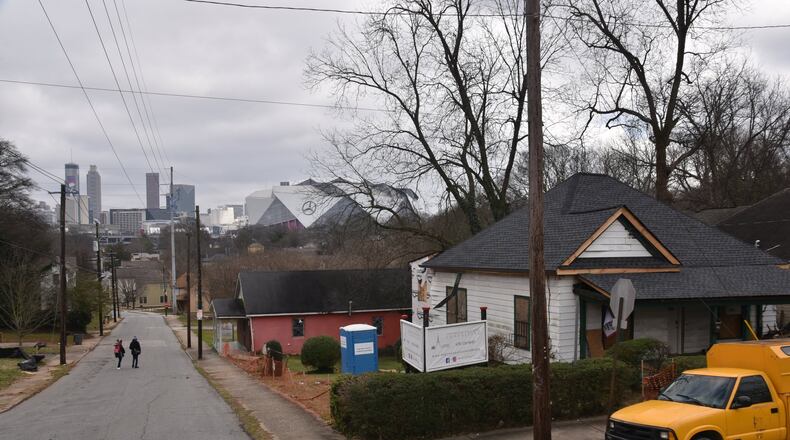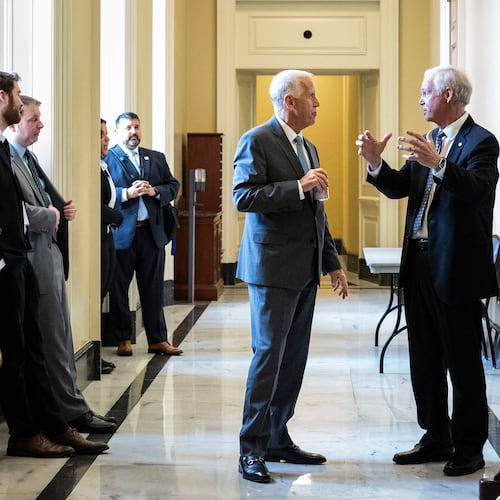If you ask one man, the day-to-day existence is dreadful in the Vine City neighborhood, which is in close proximity to the gleaming, largely taxpayer-funded stadium of the Atlanta Falcons.
“People are starving,” the man tells the reporter, adding that the money could be better used to revitalize neighborhoods and provide quality education to residents.
Another longtime resident in the South Side drives down a desolate road pockmarked with boarded-up houses and unkempt lawns, describing how he, and others in his neighborhood, resorted to selling drugs. The decision was partially due to a lack of well-paying jobs in the area, which was especially the case after a General Motors plant shuttered in the mid-1980s.
“It’s an apocalypse that’s happening around us every day,” the resident says. “It’s called poverty.”
Poverty is common in many neighborhoods of Atlanta. According to the Census Bureau, 22 percent of the city’s population lives in it. About 9 percent of the population makes less than $10,000 in annual income. And, about one in four metro Atlanta households with children are food insecure.
Poverty and food insecurity are complex problems, stemming from a variety of factors; lack of investment, poor education, lack of good jobs, and lack of opportunities in general.
As a compassionate society, we must continually work to ensure sufficient resources and support systems exist to enable people to climb up the proverbial ladder. That people have the necessary access to make the “American Dream” a reality.
The answers remain debatable on how best to provide them. But the bottom line is we need to devise solutions, both in the short- and long-term.
On Sunday, Oct. 13, Islamic Relief USA (IRUSA), in conjunction with Services for Human Advancement and Resource Enhancement (SHARE) Atlanta, hosted Day of Dignity at several locations around Atlanta.
In Day of Dignity, IRUSA partners with local community leaders and organizations to help provide items like hot meals, winter coats, and hygiene kits to those in need. People can also receive information on things like job leads or counseling, among other resources.
Atlanta was among 20 locations IRUSA selected to host Day of Dignity this year. In the best sense, Day of Dignity serves a one-stop shop that nurtures the individual’s personal, physical and spiritual needs. The goal is not to just hand out things. Rather it is to uplift, to help pave the road to self-sufficiency.
But to help individuals become self-reliant, our society needs to do more. We need to create more jobs that provide workers something close to a living wage. We need more affordable remedial and continuing education services to help people learn better, especially when current economic and job megatrends call for it. And, we need to expand access to health clinic services and nutritious food.
Until those structural problems are addressed, expect more Days of Dignity around the country.
While IRUSA and other community-based organizations will continue to do their part, influential policymakers, institutions and other stakeholders must ask themselves: Are we doing enough to address the root causes of poverty?
Anwar Khan is the president of Islamic Relief USA, a nonprofit humanitarian and advocacy organization that works on alleviating poverty and hunger in more than 40 countries. Syed M. Hassan is IRUSA’s communications and media specialist.
About the Author
Keep Reading
The Latest
Featured



